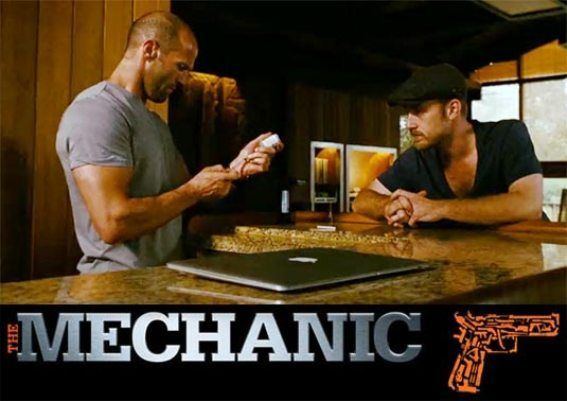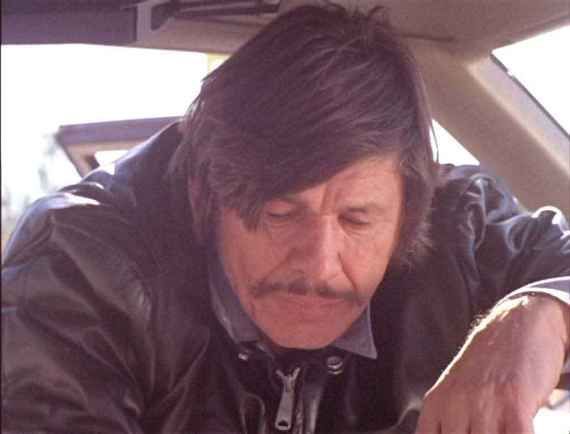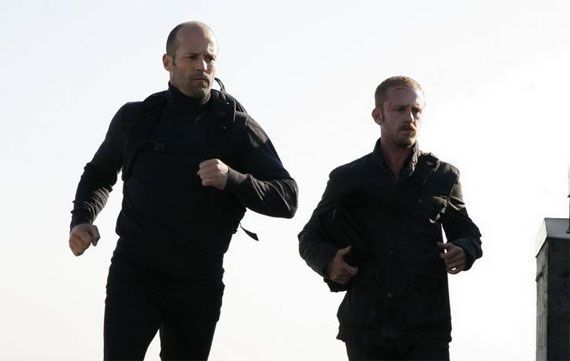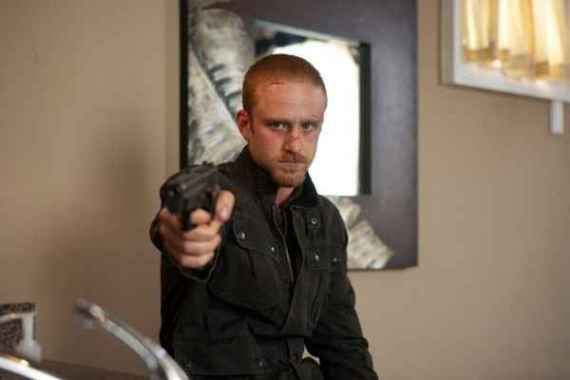Director Simon West’s remake of the 1972 Charles Bronson opus to the hardened assassin, The Mechanic, opened this weekend to a mixed critical response. We had the chance to sit down with the director and talk about his approach to adapting a the 70s era film for a modern audience. The original film birthed a new sub-genre in action -- the hit-mans tale; and the style and tone of the film was in line a time when far more ambiguous stories and characters were common.
We asked the director about some of the new directions that this incarnation of the story took, as well as which elements that he felt were essential to maintain.
Screen Rant: This felt sort of like a more methodical action movie than what people might expect from you; Con Air was very fun and big and sweeping, whereas this film had a sort of thoughtful, and sometimes even melodic, feel in between the big set pieces, so given the different tones -- what do you think makes for really great action?
Simon West: I always think that action is best if it's logical and follows cause and effect. I always thought that one of the best uses of that was in "Terminator 2," because James Cameron is like that, he's a bit of a techie guy and likes the mechanics of how action works, and I have elements of that in my personality as well. There's other people that are like "lets blow that up, and shoot that up, and have mayhem going on," and I always thought that his action worked the best because one thing led to another, and it was actually logical and you could follow it like a flow chart, and it all makes sense. That to me, is good action, because its not just gratuitous, there has to be a reason for it, but that takes a lot of working out.
SR: I know you hadn't seen the original, and that you signed on to this project based on the script and the idea, but were there elements of the original that you wanted to incorporate into this film once you did see the Bronson version?
SW: When I saw the original, I did like the fact that he was crumbling as a character. I thought that was really interesting, and it made it more attractive to me. It was only when I saw Jason doing it that I realized that it wasn't going to work because you weren't going to believe that he had any vulnerability. The only vulnerability that he had was letting his guard down and letting this apprentice in; and he made that mistake and that's when everything went wrong and he had to clear that mess up and get hack to business. So, that was one of the things that I thought I was going to keep, but the actor showed me in the performance that that was not going to work. The other things that were kept from the original are cosmetic really, like his lifestyle is solitary, he likes music, the sort of the visual icons.
SR: One thing I've noticed is that each of the “marks” in the film were unquestionably “bad guys.” I know you said that in your internal back-story for the film that they are not all necessarily bad guys, that the assignments are more arbitrary and that sometimes Bishop's (Jason Statham's) targets are bad guys, sometimes good, sometimes just human. Yet you can't deny that in the world of the film each victim has it coming in one way or another; so do you think that there's something about the American mindset that demands a more black and white view of morality in order for us to fully get behind out anti-hero and his story?
SW: You know, I don't know. I think it's one of those questions that the only way to really find the answer is to test it, and it's far too expensive to shoot it both ways. To show various audiences, and do market research and ask "do you mind if these people are just ambiguous, and you don't know if they are good or bad?" Ultimately, the people paying for the film don't want to take that risk. They want to make sure that the audience is okay with it. Personally, I think that the only way to know is to show an audience. You never really know until you show and audience. I've had experiences where I thought that an audience would respond in one way, and they didn't. On "The General's Daughter" we had a pseudo happy ending that we took right out of the book where John Travolta and Madeleine Stowe drive off into the distance together -- and the audience hated it. Because right before it they had seen this girls funeral, we had thought "we don't want to go out on a funeral, it's so down," but the test audience hated the driving into the sunset ending, so we cut off the happy ending and they loved it, the scores went through the roof. They didn't want to come out of that revelry. They didn't want to have a cheap Hollywood happy ending. So you really can't tell until you show the movie, and that's too big a risk to take, it's too expensive for the people paying for it to shoot it three different ways to test it.
SR: Do you feel like audiences today are slightly less sophisticated vs. the 70s when there were far more open-ended, elliptical stories, Two Lane Blacktop, and films like that, that don't necessarily need clearly defined answers and ridgedly drawn character sketches? Or is it the increased financial risk that causes people to shy away from more equivocal films?
SW: I think yes, it might have to be a much lower budget to take those risks to do that now. But people can do that now with HD cameras, people can shoot very cheaply, and I think its up to the filmmakers, because now you can make a film for practically nothing. So if a filmmaker wants to do that, then they should do it.
SR: Would you want to make a film like that?
SW: You know, I'm actually quite a classical filmmaker. You know, I grew up on big storytelling, Kubrick movies, though I suppose Kubrick was a little bit ambiguous. I actually like kind of classic storytelling and I was never one of those that wanted to make a film because it was cool for my friends. It was more about wanting to make a very moving story, or a very funny story, or whatever you want to manipulate the audience into... I'm quite classical. I started at the BBC with Dickens drama and then Mike Lee improvised drama, and things like that. So, I grew up on "Two Lane Blacktop" and "Medium Cool" and things like that, and when I was twelve I thought they were the coolest things in the world, but I'm not sure that I really want to make them.
-
-
SPOILERS BELOW FOR THE MECHANIC'S ENDING:
-
-
-
SR: As to the typically darker filmmaking style in the 70s, some would characterize the first version of The Mechanic as a somewhat nihilistic action film, would you say the same about your film?
SW: No, I don't think so. I think it's remarkably moral actually. I think its maybe too moral in some ways. I mean personally, I like shades of gray, I think its a bit more interesting, and I would have probably been okay with him dying at the end -- with them both dying. I can see the argument more now than I could at the beginning for changing the ending, because Jason is sort of at his peak now, and in the original Bronson was sort of sliding. I think his character was so guilt ridden over killing his mentor, and he was at the end of his career and he had no life. So it was sort of okay for him to die. Whereas Jason is so at his peak that the audience would not be as satisfied, I think the audience wanted him to go off and do what he was doing so well. I think the worst case would have been if it was him sailing off into the sunset and retiring on the boat – which was one possible ending. I think people would have said "what!? He's just killed this guy and now he's going to take an early retirement?"
SR: What did you want to bring to the ending of the film?
SW: Aesthetically speaking, whenever you mention the original the question everyone asks is "are you keeping the ending the same?" They all remember the car blowing up at the end. My original ending was that the record player blow up, because it was such a precious thing for Bishop, it was like "don't ever tough the record player," so when Steve (Ben Foster) did touch the record player, it blew up. As insurance, I also shot the car blowing up and everybody thought that I was going to choose one or the other, and in the end I put both in. So all the producers were like "oh, you used both?" and I was like "well yeah, because its really just Bishop cleaning house completely."
-
-
END SPOILERS
-
-
-
SR: Yes or no, Ben Foster delivers one of the most electrifying performances ever seen in an action film?
SW: Touch wood, yes. Your lips to God's ears. It's very hard for me to judge because I'm in there with him, but that's why I wanted him, and he couldn't have been a better person to choose. That's why I'd like to do "RPM" with him, or "Con Air 2," he'd be great in the John Malcovich kind of role.
SR: It would be amazing to see them in something together.
SW: Yeah well, not "Con Air 2" as the Malcovich character is dead.
SR: Of course.
SW:...Or is he?
The Mechanic is in theaters now.
Follow me on twitter @jrothc and Screen Rant @screenrant




